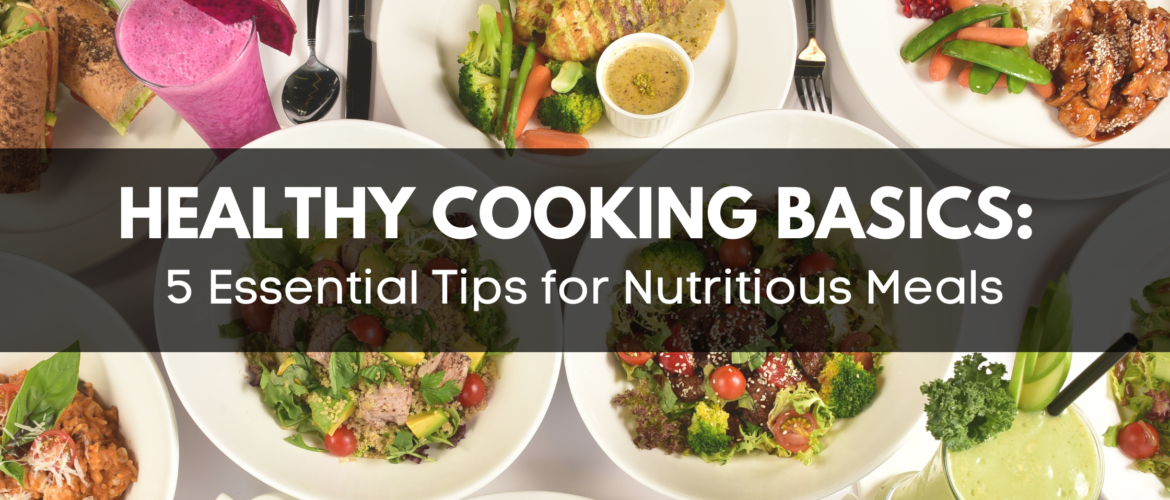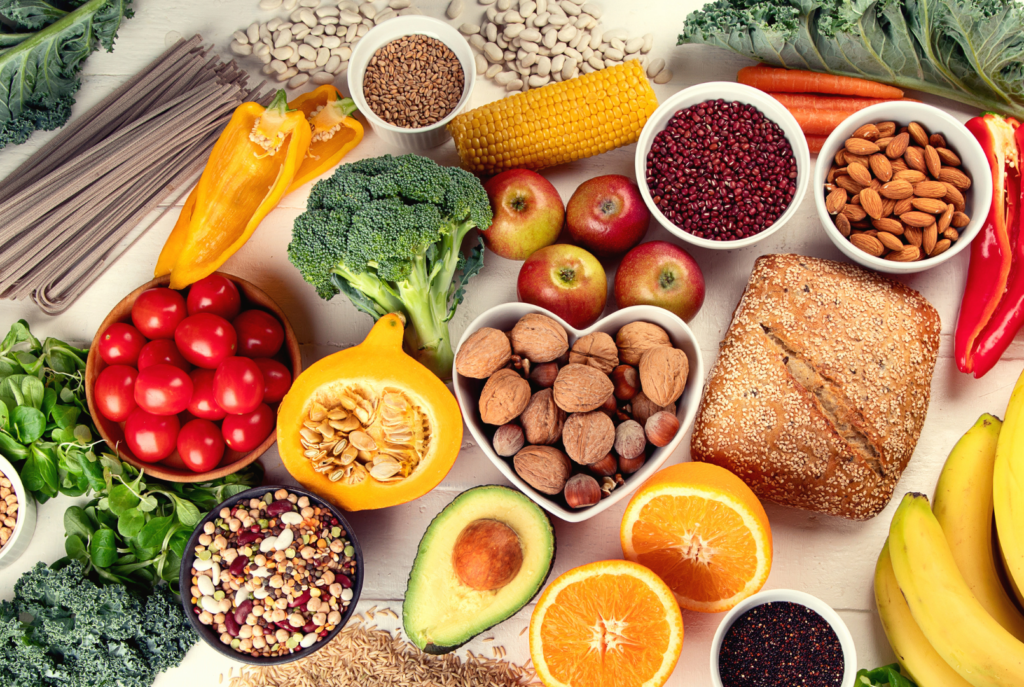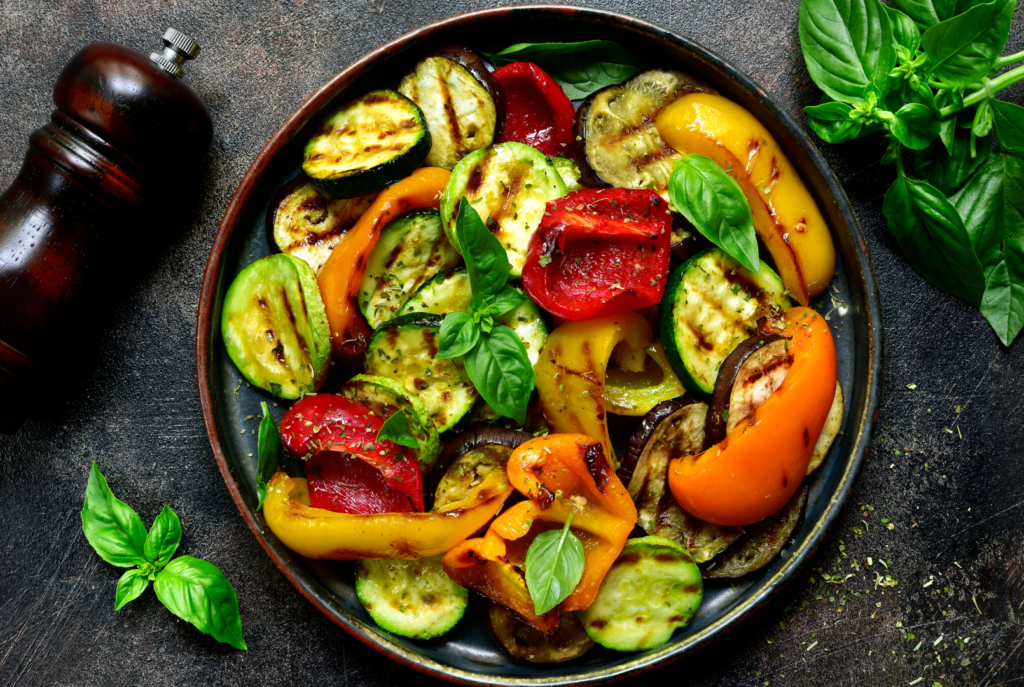Blog
Healthy Cooking Basics: 5 Essential Tips for Nutritious Meals
- October 21, 2024
- Posted by: anupagharwal

Table of Contents
In today’s fast-paced world, unhealthy eating habits can easily creep into our daily routines. But with some simple changes in how we cook, it’s possible to turn everyday meals into health-boosting feasts. Chef Manju Shah, renowned for her expertise in healthy cooking, shares her top five essential tips for making nutritious meals. Whether you are a beginner or an experienced home cook, these practical tips will help you prepare healthy dishes that support overall well-being.
Healthy Cooking: Simple Tips for a Nutritional Boost
Healthy cooking is the foundation of a balanced diet and overall well-being. By making mindful choices in your kitchen, you can easily improve your meals’ nutritional value. Incorporating fresh, whole ingredients and smart cooking practices will help you nourish your body while enjoying delicious dishes. Chef Manju Shah shares five essential tips that will guide you toward healthy cooking and make your meals both flavorful and nutrient-rich.
Tip 1: Choose Whole Foods for Better Nutrition

One of the best ways to enhance your cooking is by choosing whole foods. Whole foods are minimally processed, meaning they retain their natural nutrients, which are often lost in processed foods. This means including more fruits, vegetables, whole grains, lean proteins, and healthy fats in your diet while minimizing processed foods laden with added sugars, unhealthy fats, and excessive sodium.
Whole foods provide your body with vitamins, minerals, and fiber essential for maintaining good health. When shopping for ingredients, opt for whole-grain alternatives such as brown rice or quinoa, and select fresh vegetables and fruits. Not only do they taste better, but they’re also packed with more nutrients compared to their processed counterparts.
Tip 2: Read and Understand Food Labels

A crucial aspect of healthy cooking is knowing what’s in your food. Reading food labels carefully can help you make informed choices about the ingredients you’re using. Look beyond the marketing claims and focus on the nutritional information, checking for serving sizes, calorie counts, and nutrient content.
Opt for foods rich in fiber, vitamins, and minerals, while being cautious of added sugars, unhealthy fats, and sodium. Watch out for hidden ingredients such as high-fructose corn syrup, hydrogenated oils, or artificial additives. By understanding the labels, you can make smarter choices that contribute to healthy cooking and eating.
Tip 3: Prioritize Home-Cooked Meals

Cooking at home offers the advantage of full control over the ingredients and preparation methods. When you cook from scratch, you can customize meals to fit your dietary preferences and health goals, such as reducing salt, sugar, and unhealthy fats. Plus, you can experiment with various herbs, spices, and healthy fats like olive oil or avocado oil for flavor without compromising nutrition.
Home cooking also eliminates many of the preservatives and additives found in processed foods, helping you maintain a cleaner diet. With some simple meal planning and preparation, home cooking can be more convenient and cost-effective than relying on takeout or processed meals.
Tip 4: Add More Vegetables to Every Meal

Vegetables are key to a balanced diet and healthy cooking. They are loaded with essential nutrients like vitamins, minerals, antioxidants, and fiber. Chef Manju Shah encourages incorporating a wide variety of vegetables into every meal. Whether steamed, roasted, sautéed, or grilled, vegetables can add color, texture, and flavor to your dishes.
Try experimenting with different types of vegetables, such as leafy greens, cruciferous vegetables like broccoli, and root vegetables like carrots and sweet potatoes. Each variety offers unique nutritional benefits, so aim for a colorful plate. A useful tip is to start your meal prep by chopping a large batch of vegetables at the beginning of the week, making it easier to add them to dishes throughout the week.
Tip 5: Plan Your Meals in Advance

Meal planning is a great way to ensure you’re consistently eating healthy meals. By planning ahead, you can avoid the last-minute temptation to order takeout or rely on processed foods. Make a weekly menu and prepare a shopping list based on the ingredients you’ll need. This way, you’ll have all the essentials ready for cooking healthy meals at home.
Additionally, meal planning helps save time and money, reduces food waste, and ensures you stick to your nutritional goals. You can even prepare some meals in bulk and store them for later, making it easier to maintain a healthy cooking routine.
Bonus Tip: Use Healthy Cooking Techniques
Chef Manju Shah emphasizes that healthy cooking isn’t just about the ingredients; it’s also about the cooking techniques. Opt for methods that retain the nutrients in your food, such as steaming, grilling, or baking instead of deep-frying or pan-frying. Steaming vegetables helps preserve their vitamins and minerals, while grilling or roasting meats can bring out their natural flavors without the need for excess fats.
Using non-stick cookware, reducing the amount of oil, and opting for herbs and spices instead of salt are small tweaks that can lead to healthier meals.
Conclusion
Healthy cooking is all about making thoughtful choices. By incorporating Chef Manju Shah’s five essential tips—choosing whole foods, reading food labels, cooking at home, increasing vegetable intake, and planning your meals—you can create delicious, nutritious meals every day. Remember, even small changes in your cooking habits can have a big impact on your overall health and well-being. Start applying these healthy cooking tips today and enjoy the benefits of a healthier lifestyle!
FAQ on Healthy Cooking Tips
1. What are whole foods?
A. Whole foods are minimally processed foods like fruits, vegetables, whole grains, lean proteins, and healthy fats. They provide essential nutrients and are healthier than processed foods.
2. How can I understand food labels?
A. Focus on serving size, calorie count, and nutrients. Look for fiber, vitamins, and avoid added sugars, unhealthy fats, and sodium.
3. Why is cooking at home healthier?
A. Cooking at home lets you control ingredients, avoiding unhealthy additives and preservatives in takeout or processed foods.
4. How can I add more vegetables to my meals?
A. Experiment with different vegetables and prep them in advance. Add them to soups, salads, or main dishes.
5. Why is meal planning important?
A. It saves time, reduces food waste, and helps you make healthier meal choices by having all ingredients ready.
6. What are some healthy cooking techniques?
A. Use steaming, grilling, roasting, and sautéing with minimal oil. These methods preserve nutrients and reduce unhealthy fats.
7. Can meal prep save time?
A. Yes, preparing meals or ingredients ahead of time makes cooking quicker and ensures healthier choices.
8. How do I ensure my meals are balanced?
A. Include a variety of food groups (grains, proteins, fats, veggies), aim for a colorful plate, and use healthy cooking methods.
